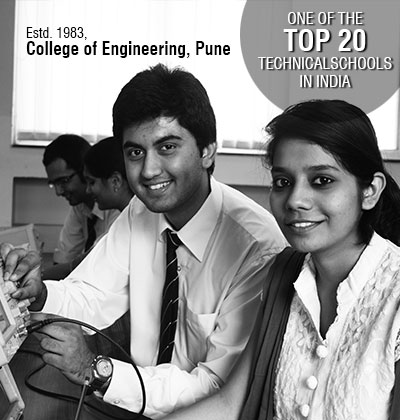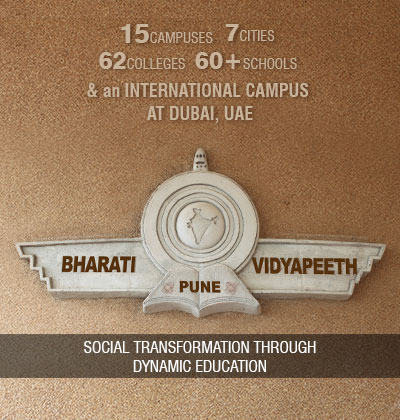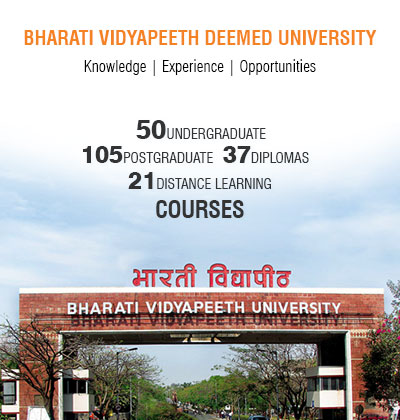- Home
- Explore Bharati Vidyapeeth
- Learn Academic Schools
- Learn Academic Schools
- Medical
- Dental
- Ayurved
- Homeopathic
- Nursing
- Engineering
- Management
- Pharmaceutical
- Social Science
- Environment Science
- Geo Informatics
- Physical Education
- Law
- Arts Science Commerce
- Biotechnology
- Research
- Architecture
- Hotel Management
- Fine Arts
- Photography
- Hospital Administration
- Agriculture
- Computer Applications
- Bioinformatics
- School of Distance Education
- K12 Schools
- Experience Campus Life
- Sister Concerns
- Social Initiatives
- Bharati Publications
- Student Facilities
- News and Events
- Gallery
- Contact us
- Details
B. Tech Civil
Objective:History |
|
|
"Civil Engineering is the art of directing the great sources of power in nature
for the use and convenience of man, as the means of production and of traffic in
states, both for external and internal trade, as applied in the construction of
roads, bridges, aqueducts, canals, river navigation and docks for internal intercourse
navigation by artificial power for the purposes of commerce, and in the construction
and application of machinery, and in the drainage of cities and towns. Civil Engineering has been an aspect of life since the beginnings of human existence. Civil engineering might be considered properly commencing between 4000 and 2000 BC in Ancient Egypt and Mesopotamia when humans started to abandon a nomadic existence, thus causing a need for the construction of shelter. The construction of Pyramids in Egypt (circa 2700-2500 BC) might be considered the first instances of large structure constructions. Other ancient historic civil engineering constructions include the Parthenon by Iktinos in Ancient Greece (447-438 BC) In 1818 the Institution of Civil Engineers was founded in London, and in 1820 the eminent engineer Thomas Telford became its first president. The institution received a Royal Charter in 1828, formally recognising civil engineering as a profession. In India pioneering work is done by the eminent engineers like Sir M.Visveswariya |
|
| Present status at National and International level | |
|
In a developing country like India construction activity is the second largest economic
activity next to agriculture .The amount of money invested and the job provided
by the civil engineering industry Are much larger than any other industry. Many major projects like Express ways, River linking projects, Metro rails, Nuclear power projects, Hydropower projects, Docks and Harbors, Fly overs, International Air ports are coming up in various parts of the country .Due to developments in the IT industry many IT parks are coming up in major cities. The scenario is almost same at international level. Placement Opportunities Civil Engineering graduates have a wide variety of professional options available to them. Some enter the practice of civil engineering, working for engineering firms or starting their own businesses; others work for city, state, or country governmental organizations, becoming city, state, or country engineers. Still others pursue Masters or Ph.D. degrees, which lead either to academic positions or higher level jobs within the private sector. Ultimately, an engineering degree provides a rigorous exposure to logical thinking and the design process. With the immense growth in housing infrastructure development, nuclear projects, Hydropower project etc. There is ever growing demand for well educated and well trained civil engineering students all over the world. Change in Technology in last five years In the past few years the scope of civil engineering has grown to include several new areas of study that is Project Management ,Life cycle design ,Real time monitoring ,Rehabilitation, Smart systems, Space structures, Remote sensing and Geographical information system ,Design using softwares ,Bus rapid transit system, Metro rail, Mega city development ,Malls etc. |
|
|
Up coming Technology
Overall globalization of economy as resulted in more and more demand for better infrastructural facilities and ecofriendly environment ,To cope up with this the new techniques that are used in this industry are Green buildings ,Eco housing for sustainable development, use of non conventional energy for energy conservation ,Rain water harvesting, Use of advanced composite materials ,High performance concrete ,Roller compacted concrete ,Ready mix concrete etc. Effects and use to the society Civil Engineering is for people; planning and constructing the environment in which they live. Civil Engineers are men and women who have trained to plan, design, construct and maintain the facilities which contribute to our modern way of life. Civil Engineers are responsible for buildings, bridges, roads, harbours, dams, airports, coastal protection, water supply and public health services. Civil engineering plays a very important role for the socio- economic development of the human being and for development of healthy cities .It is a discipline which is of use for common man in every day requirements. Future scope There is unlimited scope to this discipline at national as well as international level as every day there is growing demand for housing, amenities and infrastructure. In India major projects like golden quadrilateral and River interlinking projects are coming up. In future civil engineers are required to deal with the major problem’s like water scarcity, Environmental pollution, Solid west management Traffic management etc. |
|
Duration: |
4 years |
Eligibility: |
|
|
|
| If you are an international student interested in pursuing a course / programme in Bharati Vidyapeeth kindly visit our International Students department | |
- Details
BBA
Objective: |
|
| It is the three year full time course to introduce the concepts of Business Administrator. | |
Duration: |
3 years |
Eligibility: |
|
| A Candidate applying for the BBA Programme should have passed HSC (10+2) or equivalentexamination from any statutory board with minimum 45% of marks in aggregate(40 %in case of SC/ST candidates). | |
| If you are an international student interested in pursuing a course / programme in Bharati Vidyapeeth kindly visit our International Students department | |
- Details
Engineering
Colleges Affiliated to State Universities
- Bharati Vidyapeeth's College of Engineering, Lavale, Pune
- Bharati Vidyapeeth's College of Engineering for Women, Pune
(University of Pune) - College of Engineering, New Delhi
(Guru Gobind Singh Indraprastha University, Delhi) - College of Engineering, Navi Mumbai
(University of Mumbai) - College of Engineering, Kolhapur
(Shivaji University, Kolhapur)
Constituent Institutes of Bharati Vidyapeeth University
Explore Bharati Vidyapeeth
Pune

BV University has three campuses in Pune, at Dhankawadi on Pune-Bangalore Highway 5 kms in the south of Pune, and at Erandwane.
Read more...
New Delhi

One of our major campuses is located in Delhi. It is situated in a prestigious locality of Paschim Vihar on the new Rohtak Road. It is spread over 8 acres of land. Read more...
Navi Mumbai

Bharati Vidyapeeth has two campuses in Navi Mumbai. Both these campuses are located in prime localities and are easily accessible. Read more...
Sangli
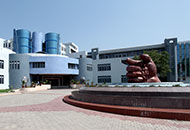
Bharati Vidyapeeth houses three campuses in Sangli which includes a sprawling 50 acre campus in Wanlesswadi, Rajwada Chowk Read more...
Kolhapur
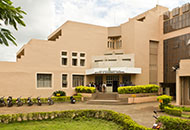
Bharati Vidyapeeth (Deemed to be University) has two campuses in Kolhapur, one at Kadamwadi and another at Chitranagari.Read more...
Solapur
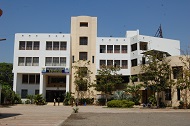
BVDU is located at the central part of Solapur. The institute is spread over in an area of 11,500.54 sq.mtrs in lush green and pollution free area.Read more...
Karad
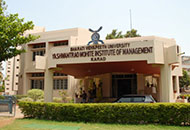
The Karad Campus is conviently located in Karad on the Mumbai Bangalore Highway. It houses the YMIM and YCLC colleges.Read more...
Palus
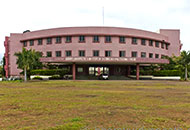
The Campus at Palus in Sangli Dist houses the Institute Of Technology a Polytechnic College. Read more...
Kadegaon
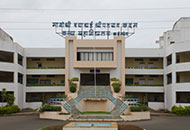
Bharati Vidyapeeth houses 12 schools and 2 state university affliated colleges in Kadegaon. Read more...
|
|
|
|
|
|
|
|
© 2026 - Bharati Vidyapeeth, Pune. All rights reserved. Developed and maintained by Technology Department, Bharati Vidyapeeth.
Privacy Policy | Disclaimer
(8)
Privacy Policy | Disclaimer





